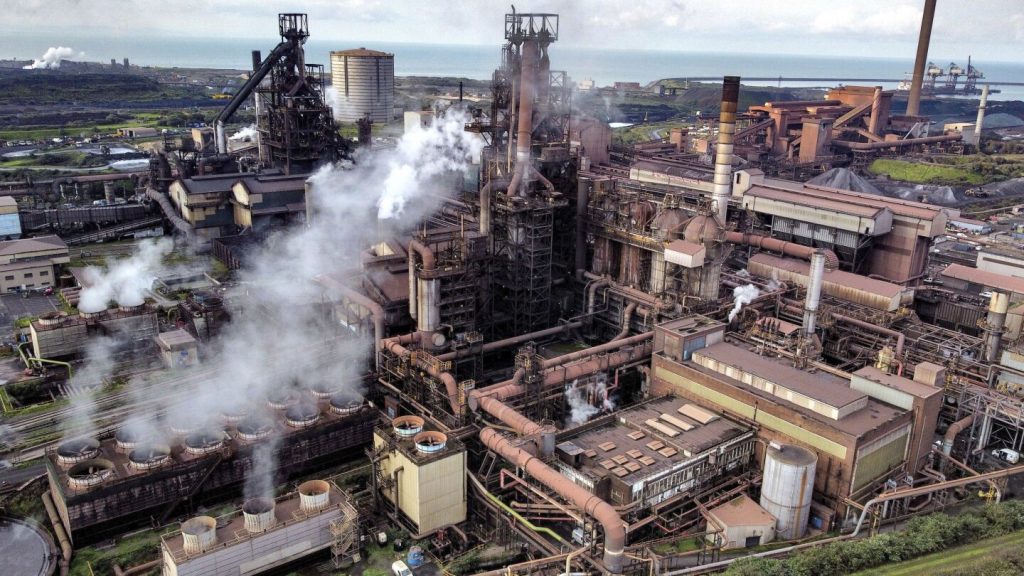Steelworkers at Britain’s largest steel production plant have voted to strike for the first time in around 40 years in protest of the planned loss of 2,800 jobs by Indian owner Tata Steel. The Unite trade union reported that 1,500 of its members at the south Wales plant and the nearby Newport Llanwern processing plant supported the strike action. Tata had announced plans to close both blast furnaces at Port Talbot in an effort to make its U.K. operation more efficient and environmentally friendly by replacing them with electric arc furnaces.
The decision to strike comes amid ongoing negotiations between Tata and the union, with Tata warning that enhanced redundancy packages would be withdrawn if workers went on strike. The company has defended its plans to transition from coal-fired blast furnaces to electric arc furnaces, which require fewer workers. Tata stated that 2,500 jobs will be cut by the middle of next year, with an additional 300 at long-term risk. Despite the strike vote, Tata reaffirmed its commitment to the planned restructuring, aiming to become a center for a future green sustainable industrial ecosystem in the U.K.
The closure of the blast furnaces at Port Talbot is a significant blow to the town’s economy, which has relied on the steel industry since the early 1900s. The plant’s workforce is expected to decrease significantly if the restructuring goes ahead, with fewer than 1,000 people slated to be employed at the plant. The decline of the steel industry in Britain has been ongoing, with employment numbers dropping from over 300,000 in 1971 to around 26,000 in 2021. Currently, the steel industry accounts for only 0.1% of the British economy but contributes 2.4% of the country’s greenhouse gas emissions, as per research by the House of Commons Library.
The Unite trade union has criticized Tata’s plans and the government’s approach, labeling them as short-term strategies by an indifferent government awaiting an upcoming general election. Unite General Secretary Sharon Graham indicated that the vote in favor of striking was a resolute response to Tata’s actions, despite the company’s threats regarding redundancy packages. The union has secured commitments from the main opposition Labour Party to invest significantly more in the U.K. steel industry compared to the current Conservative government, which could influence the steelworkers’ decision to strike.
As political dynamics shift with an impending general election, the fate of the steel industry in Britain hangs in the balance. The Labour Party’s pledge to invest more in the sector contrasts with the Conservative government’s approach, potentially impacting the outcome of the strike and the future of Tata’s restructuring plans. The clash between Tata Steel and its workers reflects broader challenges faced by the steel industry globally, with issues of job losses, environmental concerns, and economic impacts playing out in communities like Port Talbot. The steelworkers’ decision to strike represents a pivotal moment in the ongoing struggle to preserve jobs and livelihoods in one of Britain’s historic industrial sectors.


